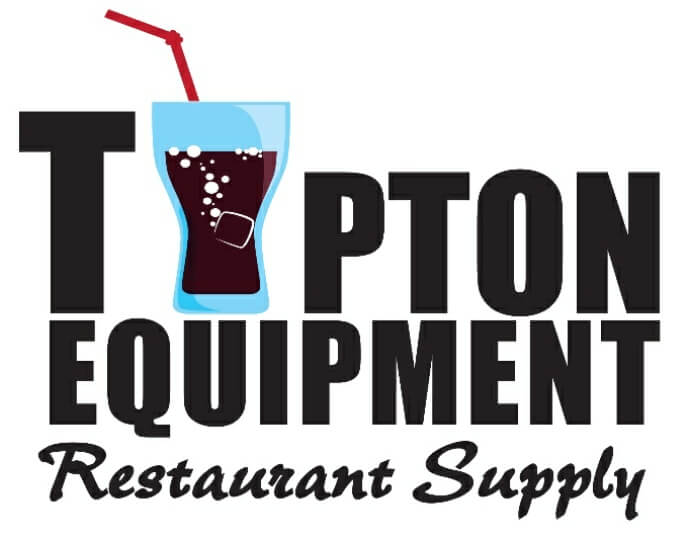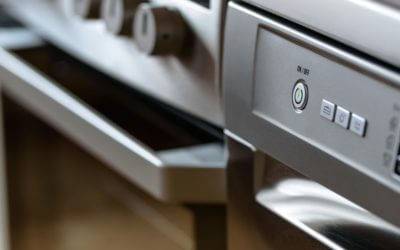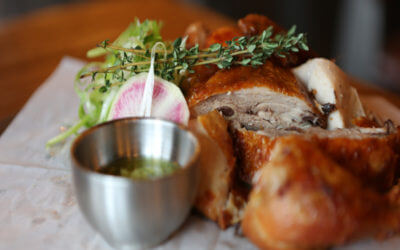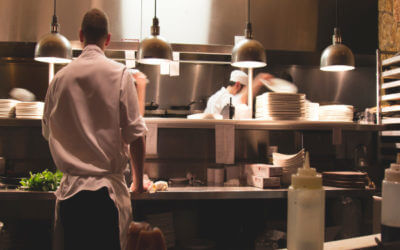Kitchen Equipment Spotlight: How to Maintain a Commercial Freezer
January 21, 2019Your commercial freezer can be a lifeline for your restaurant. Safe food storage is vital, and a high-quality freezer is essential kitchen equipment.
However, a freezer is only as good as the maintenance that goes into it. Without proper care, your freezer will become inefficient, fail to hold the right temperature, or perhaps break entirely.
Whether you’ve chosen an excellent quality used freezer or a new unit, here’s what you need to know to keep it running well for years.
Keep the Freezer Organized
Organization is not a nuts-and-bolts tip, but it’s just as important as any physical maintenance.
If you don’t have an organized freezer, you’re probably wasting energy. Unused corners and uneven packing makes your freezer’s coils and motor work far too hard.
Also, if you don’t have a good system for bringing out frozen food in a timely manner, you could end up with food waste, mold, and other problems. Without great organization, there’s no way to know what should be brought out next.
Of course, as a freezer is used throughout the night and through the week, it will quickly get disorganized and cluttered. Make sure you include cleaning up and resetting the freezer in your closing protocol so that this important kitchen equipment is ready for the next day.
Clean the Freezer Regularly
You should clean the shelves, walls, and floor daily or weekly. All spills need to be cleaned right away, and it’s important not to use harsh chemicals. Chemicals can damage the metal or seals of the freezer, causing it to fail and need repairs much sooner.
Every six months the coils of your freezer should be cleaned. This is not usually difficult. You simply need an employee to clean them with soapy water and a bristle brush.
This will help your freezer maintain the right temperature over time. It also this kitchen equipment last longer.
Check for Leaks and Cracks Regularly
Having a freezer technician come in and inspect the unit every six months can give you a lot of peace of mind.
Here are some things to do at least twice a year:
- Check lines for condensation
- Clean fan blades and check motor
- Check insulation integrity
- Look for air leaks in cracks, holes, and seals
- Ensure electrical connections are secure
- Clear drain lines
- Calibrate thermometers
- Check ice filters and clean all ice maker components
You can afford to have this kitchen equipment break down. Taking preventative steps now will save you a ton of time, money, and headaches later!
Upgrade Your Kitchen Equipment If Needed
Even with the very best maintenance, no freezer will last forever. Eventually, it will need to be replaced. You might also find that you need additional kitchen equipment if you’re expanding or remodeling your kitchen.
If you want some quotes on the equipment you need or help with layout and arrangements, we are here to help. Tipton Equipment has been serving Little Rock restaurants for many years. Contact us for more information today!
5 Things Every Restaurant Owner Should Do Before Buying Used Kitchen Equipment
Equipping your restaurant properly can cost a lot of money, so buying used kitchen equipment is the go-to choice for many restaurateurs. Buying used kitchen equipment for a restaurant is a bit different than buying used equipment for your home, however. You will...
Top Restaurant Technology Trends in 2018
When looking to buy restaurant supplies, you want to be on the leading edge of technology trends. This will keep your kitchen running smoothly. Let’s take a look at some of the most recent trends in restaurant supplies technology. 1. New Payment Options Who would...
5 Different Ice Shapes and Why You Should Care About Them
Ice makers are very popular in the restaurant and foodservice community because they eliminate the need to buy ice every day. And of course, adding an ice maker to your collection of foodservice equipment means you will always have ice on hand when you need it. An...
Pulping and Grinding: A Starter’s Guide to Reducing Commercial Food Waste Costs
For most restaurant owners and managers, the expenses involved in making meals are always under careful consideration. Water is needed to prepare, cook and wash food; power is necessary for food prep, cooking and cooling, and so on. However, how many of us consider...
Choosing the Right Milk Cooler: Cold Wall or Forced Air?
In a restaurant, milk is an essential to have on hand for coffee and other café-style beverages, for serving with kids’ meals, and as a key ingredient in many recipes. Keeping your milk properly chilled can be difficult without the proper restaurant equipment....
How to Choose Your Next Commercial Meat Smoker
The movies that connect with us on a personal level are the ones that linger in our memories forever. Anyone who has used a commercial meat smoker knows that they have a huge influence on the taste of a meal. You need to have just the right kitchen equipment to get a...
Are High Speed Ovens Too Good to be True?
You might have heard a few of the bold claims that foodservice equipment manufacturers have been making about high speed ovens, but they can’t be possible, right? Cooking three times as faster as regular ovens? Five times as fast? Fifteen times as fast? It may seem...
Choosing the Right Food Storage Containers for Your Restaurant
Choosing the right kitchen supplies will make a difference in your restaurant. Whether it is heavy duty kitchen equipment or food storage containers, each piece of equipment plays its own important role. Today, we are going to talk about how to choose the right food...
Tipton’s Guide to Perfect Poultry Trussing
Do you ever truss birds in your commercial kitchen? Trussing is a fantastic cooking technique because it makes poultry cook faster, look more attractive and taste better. If your commercial kitchen prepares poultry, you don’t want to miss these trussing tips. Trussing...
How to Eliminate Excess Condensation in Your Kitchen
Is your commercial kitchen getting steamy? If so, you could have more than just an uncomfortable working environment on your hands. Excess moisture in your commercial kitchen can result in the corrosion of equipment, the development of mold, and even damage to your...
The DIY Guide to Your Restaurant’s Own Garden
Stocking your restaurant supply with your own home-grown herbs and produce can truly bring your dishes to life. When it comes to food, everyone knows there’s nothing like homemade and home-grown. Having your own culinary garden, however large or small, can help you...
5 Reasons a Meat Grinder Will Set Your Burgers Apart
The more you do to prepare your foods in-house with the right kitchen equipment, the fresher and more flavorful your dishes become. There are all sorts of restaurants offering fast-food style burgers, but some diners are looking for the real deal. A fresh, juicy...
Pest Preventions to Implement in Your Commercial Kitchen
Restaurant pests: it’s something that few people want to think about. Like it or not, pest management is an essential consideration for every commercial kitchen. Offering food, shelter and water, the unprepared commercial kitchen naturally provides everything pests...
Choosing the Right Material for Your Cooking Equipment
Kitchens are very unique to their chef. Just like a car mechanic has a toolbox unique to them, so is the cooking equipment in a kitchen. And over time, the same cooking equipment become a natural extension of the chef. What tools are you using in your kitchen? It...
Kitchen Hacks for Your Home
Some people are naturally good at certain skills. We all know someone who is naturally book smart, athletic, or musically inclined. What makes you jealous of them is how easy they make tasks seem compared to you. One skill might be cooking. Your dream may not be...















